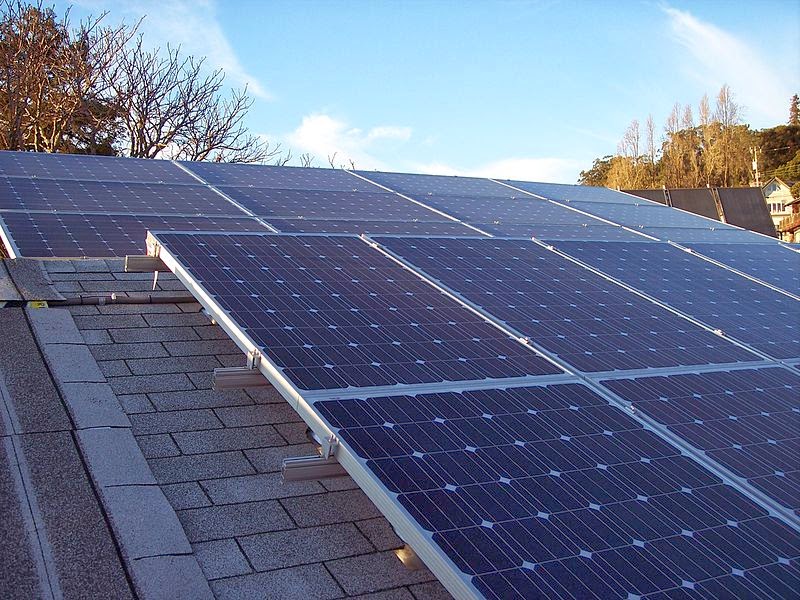We find the reasons for this answer not in the two states' natural environments but in their political climates. As this news article reports, last November, a regulatory agency in Arizona approved a proposal to charge people monthly fees for installing solar panels on their roofs. This meant that anyone who installed solar panels after the policy was put in place would have to pay $4.90 per month just to have the panels. This week, the Washington state legislature rejected a similar idea, according to this report.
To understand why people would be charged for having solar panels and why Arizona and Washington have taken different stances on the issue, let's look at two current trends. First, solar panels have become quite cheap compared to their prices when they were first introduced and relative to traditional forms of energy like fossil fuels. With this decrease in price comes greater availability. In fact, as discussed here, Best Buy now sells solar panels.
The greater availability and lower prices of solar panels have made them a true threat to traditional energy providers. With the panels, people can make their own energy and no longer have to get it from utilities. The energy industry sees what this means for its profits and is using proposals for monthly fees like those approved in Arizona to fight back.
A second trend explains why Washington chose a different path than Arizona. Conservative politicians have adopted a stance that supports traditional industries and fossil fuels and have thrown up roadblocks to alternative energy sources. (Note in the article about Washington state's legislature that the proposed bill resulted from a collaboration between conservative lawmakers and the energy industry.) The monthly fees on solar panel ownership are an attempt to make getting solar energy harder again and prevent a move away from traditional energy sources. Washington state simply has a less conservative political climate, and that has made all the difference.
Thanks to a government that supports alternative energy and better ways of living within the environment, the future for solar power remains bright in Washington.

No comments:
Post a Comment
Note: Only a member of this blog may post a comment.